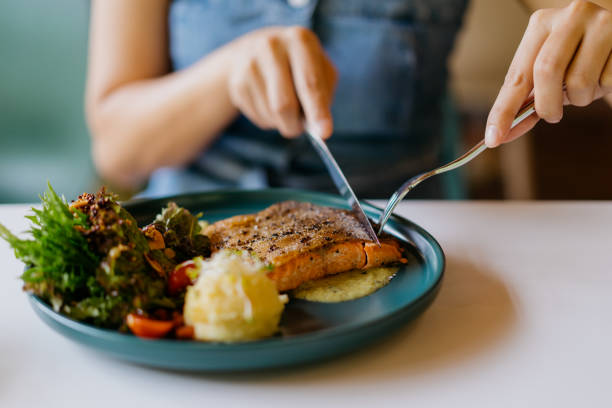Eating enough to gain weight can be a challenge for some people, particularly those with a fast metabolism or who are naturally thin. However, with a proper understanding of calorie needs and nutrient requirements, it is possible to achieve weight gain through diet alone.
First, it is important to understand that weight gain is simply the result of consuming more calories than your body burns. Therefore, in order to gain weight, you need to increase your calorie intake. This can be achieved by eating more food, choosing higher calorie foods, or a combination of both.
To determine how many calories you need to eat to gain weight, you will first need to know your Basal Metabolic Rate (BMR). BMR is the number of calories your body burns at rest, and it can be calculated based on your age, sex, weight, and height. Once you know your BMR, you can then determine your Total Daily Energy Expenditure (TDEE), which takes into account your level of physical activity.
The next step is to increase your calorie intake by a certain number of calories above your TDEE. A safe and sustainable rate of weight gain is between 0.5-1 pound per week, which can be achieved by consuming an additional 250-500 calories per day.
It is important to note that not all calories are created equal. In order to gain weight in a healthy way, it is important to choose nutrient-dense foods that provide a balance of carbohydrates, protein, and healthy fats. Carbohydrates provide energy, protein is essential for building and repairing muscle tissue, and healthy fats are necessary for overall health and hormone production.
Some high-calorie foods that are also nutrient-dense include:
Nuts and seeds
Nut butters
Avocados
Whole milk and cheese
Meat, poultry, and fish
Whole grains
Legumes
In addition to increasing your calorie intake, it’s important to also focus on consuming enough protein, as it plays a critical role in muscle growth and repair. A general guideline is to consume 0.8-1 gram of protein per pound of body weight per day.
It is also important to focus on resistance training to build muscle mass. This can include weightlifting, bodyweight exercises, or resistance bands. Not only will resistance training help to build muscle, but it will also increase your appetite and make it easier to consume more calories.
Finally, it’s important to be patient and consistent. Gaining weight can take time, and progress may not be linear. It’s important to stay consistent with your diet and exercise routine, and to track your progress over time.
In conclusion, gaining weight requires a calorie surplus, which can be achieved by increasing your calorie intake and choosing nutrient-dense foods. It’s also important to focus on consuming enough protein and resistance training to build muscle. Patience and consistency are key, and tracking your progress will help you stay on track. Remember to always consult a healthcare professional before making any significant changes to your diet or exercise routine.

 Home
Home Health
Health Diet & Nutrition
Diet & Nutrition Living Well
Living Well More
More












